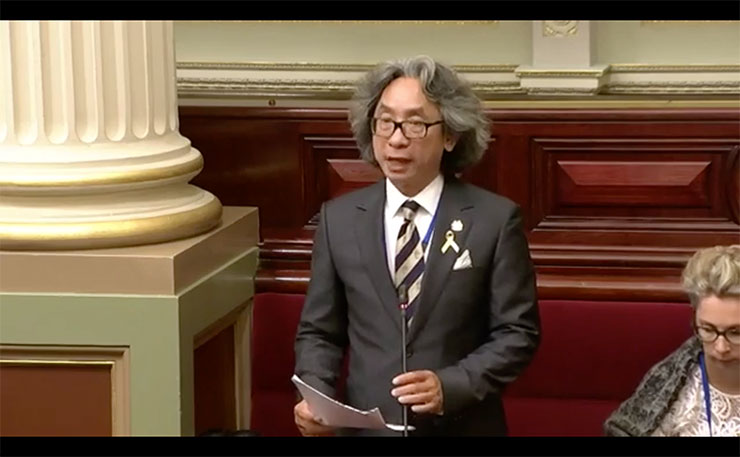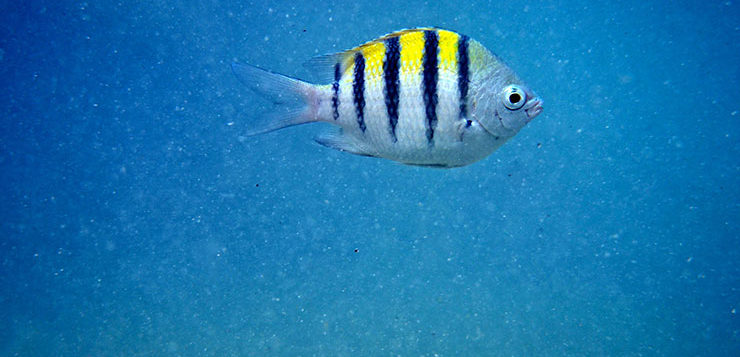DON’T MISS ANYTHING! ONE CLICK TO GET NEW MATILDA DELIVERED DIRECT TO YOUR INBOX, FREE!
Being smart and an expert in stuff like quantum physics is all well and good, until you try and mix politics with a debate around nuclear energy. Geoff Russell explains.
Yesterday, the Victorian Parliament voted for an inquiry into whether the 1983 prohibition on “Nuclear Activities”in the State of Victoria should be lifted.
I should be happy, the motion was passed; there will be an inquiry. But….
The display of scientific ignorance and illiteracy during the brief debate was extraordinary.
South Eastern Metropolitan Member David Limbrick, from the Liberal Democrats, moved the motion and spoke at length. He had done his homework and his speech was well prepared. It also contained a statement that should be etched into every pew of the Parliament with a very large pen knife:
“Although I had studied physics and university and had some basic knowledge of radiation, I had near zero knowledge of how it might affect humans.”
Humble and accurate… but all the following speakers seemed to have missed it. Sonja Terpstra, speaking for the ALP clearly did. She introduced physicist and fellow ALP member of the Legislative Council, Dr Tien Kieu as if he were an expert on the issue. He wasn’t.
The fact that Dr Kieu also wrongly seemed to think he was an expert aside, Terpstra seemed in awe of Kieu’s qualifications in quantum physics, despite them having nothing at all to do with the health impacts of radiation, or the fears around nuclear waste.
Case in point: if Ms Terpstra got skin cancer from solar radiation, would she consult a quantum physicist?
The answer is probably ‘No’.
The science of the interactions of radiation and biology are so complex that it takes three disciplines to deal with them: radiobiology, oncology and epidemiology. Physics is but one part of the first of these. Of course, Kieu might have done some reading outside of his professional qualifications and educated himself on the relevant subjects, as David Limbrick had done; but it certainly didn’t appear so.
We can understand the irrelevance of physics if we focus in detail on one issue. Kieu showed his total ignorance of the relevant science by claiming, for example:
“In Fukushima they are running out of places to store the water that has been contaminated with the radioactivity and that water cannot be released into the sea because it will damage all the fisheries, human health and everything around Japan and then be propagated to the west coast of the US and even to Australia.”

The water stored at Fukushima is contaminated with tritium, a form of hydrogen, the rest of the isotopes have been removed. Physicists certainly know what tritium is. And they may have studied its mode of decay and many other properties.
But is tritium dangerous to fish or humans? That’s not a physics question, it’s a biology question. You can’t work it out with quantum theoretical calculations. If you want to investigate the impacts of tritium on animals (including people), then you need to do some research.
A 2006 studyfound no human data on any carcinogenic effects of tritium. They summarised the available animal studies and it’s clear that, as with eating beef, milk or running on a treadmill, you can produce DNA damage by feeding tritiated water (water containing tritium) to animals. But unlike beef and milk, you need extraordinarily massivedoses of tritium to produce DNA damage.
For example one study looking for bone marrow impacts found nothing below a dose of 370,000 Bq per gram of animal bodyweight per day. A becquerel (Bq) is just a measure of radioactive decay. The human body is normally radioactive to the tune of 7,000 Bq, so 370,000 per gram… every day… is huge, but didn’t produce any measurable damage in the study.
They also looked for DNA damage in mice drinking water with a tritium level of 1,110 million Bq per litre; and didn’t find any.
The concentration of tritium in 2016in the water stored at Fukushima was between 0.3 and 4.2 million Bq per litre; over 200 times lowerthan the tritiated water used to dose those poor suffering rodents.
How much of the tritium contaminated water would you need to drink in a day to exceed the rat-safe radiation level? With 260 million Bq per litre, a 70kg person would need to drink about 100 litres to hit 370,000 Bq per gram of body weight. The water would, of course, kill you in its own right… but if by some miracle you survived, you’d have to drink a substantial amount each day to maintain that level.
If the water you were drinking was sea water, you’d die even quicker. And the salt would be a much bigger cancer risk than the tritium, salt being a well-known cause of stomach cancer.
Other studies did indeed manage to produce slightly elevated cancer tumour numbers in rats with tritium; either by having them drink tritiated water all their lives at a level of 37 million Bq per litre, or injecting them directly with such water at high levels for long times.
None of this is physics, and you won’t know it unless you do the work to study it. Dr Kieu would be well placed to estimate the radioactivity of a litre of sea water around Fukushima if all of that currently stored water was released over the course of a week, and I’d strongly urge him to do so.
So why hasn’t the tritium been released? The Government of Japan ordered the evacuation of Fukushima in defiance of the guidelines of the IAEA, so why would anybody expect them to show any sense when it comes to tritium? They are probably no more scientifically literate than the Victorian Government.
Experts have examined the radioactivityin fish due to the non-tritium radioactive materials from the Fukushima meltdowns and it is easily exceeded by the natural radioactivity in fish. Talk of either it or the tritium damaging fisheries is just the ignorant talk from somebody who thinks that being smart is equivalent to knowing stuff. It isn’t.
Compared to fishing, which definitely kills fish, and has driven many fisheries to the brink of failure or beyond, the radioactive contamination has been wonderful for fish off the Japanese coast. It is utterly harmless to them while being quite a good deterrent to human predators.
I’d love Dr Kieu to follow David Limbrick’s lead and recognise that being a physicist doesn’t make you infallible and actually do some reading about the issues. Read some oncology, read some epidemiology.
My story on nuclear power is very similar to David Limbrick’s. I did some physics at University also. I too thought I was pretty smart; knowing plenty of fancy words and concepts to do with radiation, isotopes and the like.
It came as a shock later in life to realise that biology is a whole different field and that, when I thought about it, I knew sweet bugger all about radiation’s impact on DNA and the causes of cancer. Knowledge about such things isn’t attracted to the brains of physicists by some strong atomic force, they have to read extensively and think hard, just like everybody else.
And what of that intractableradioactive waste problem?
Of all the waste problems on the planet, and there are plenty, radioactive waste is one of the most manageable. It’s been studied to death and the engineering is pretty straight forward. Again, that’s not something you can just knowby being a physicist, or a politician, you have to open your brain and your eyes and read the damn scientific literature.
Even so, the motion passed. There will be an inquiry. That makes three on the go plus the 2016 Royal Commission in South Australia. They can’t come soon enough.
The International Energy Agency (IEA) recently called on the nuclear industry to do more and it has to reform itself and pull its weight. We need many reactors and they have to be built quickly.
The Chinese are starting to do this, with the even more revolutionary Thorcon also gearing up.
But we are running out of time, having wasted two decades on cute little slogan driven technologies that were grossly inefficient in their use of natural resources… needing many times more mining and more land.
Some of us worked out a decade ago that wind and solar wouldn’t cut it, and each year, the evidence just gets stronger… to those who bother to look.
It’s nuclear power or its a very hot planet, that’s the choice.
DON’T MISS ANYTHING! ONE CLICK TO GET NEW MATILDA DELIVERED DIRECT TO YOUR INBOX, FREE!
Donate To New Matilda
New Matilda is a small, independent media outlet. We survive through reader contributions, and never losing a lawsuit. If you got something from this article, giving something back helps us to continue speaking truth to power. Every little bit counts.




